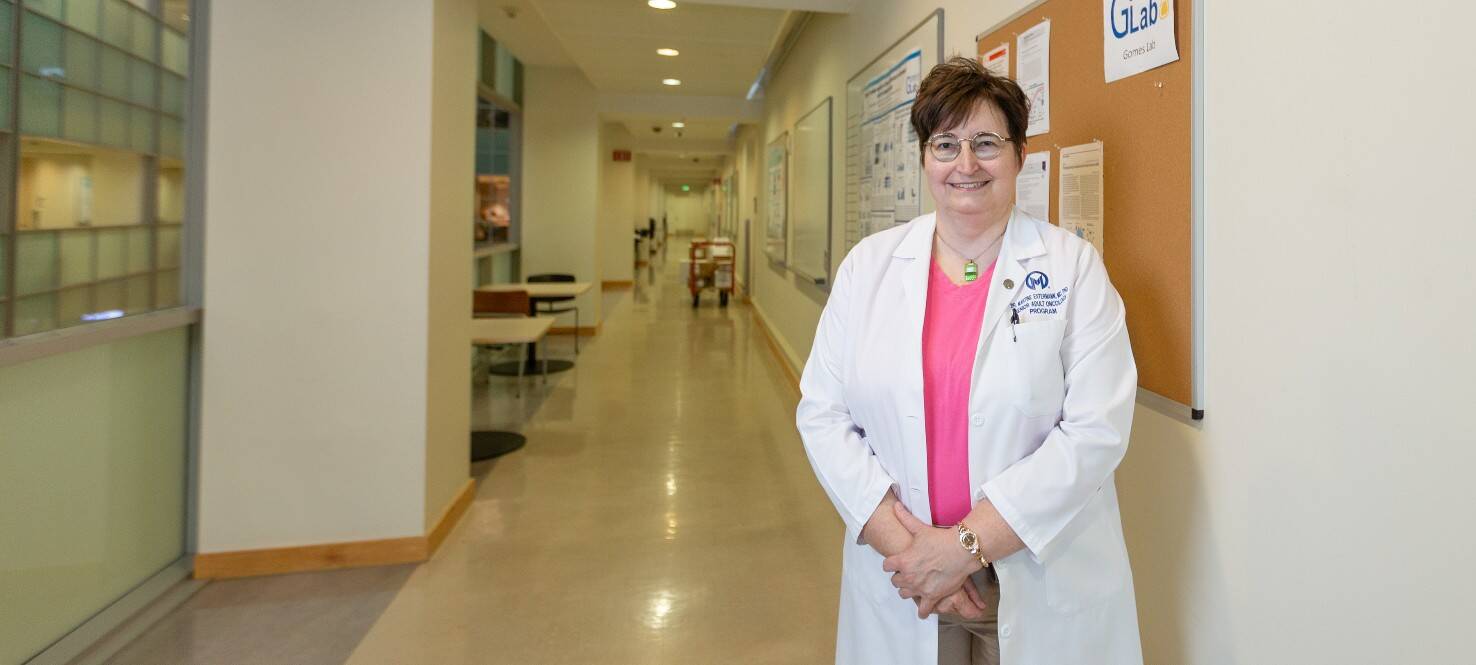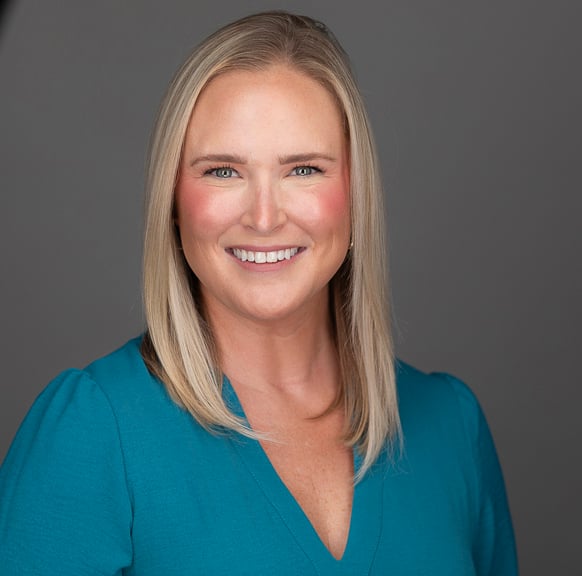Cancer, Aging and a New Era of Care
SPECIAL SERIES: WOMEN IN ONCOLOGY
Women faculty at Moffitt Cancer Center come from different backgrounds around the globe. Their areas of research and clinical care span the entire cancer continuum, from treatment to prevention. Community involvement and mentorship among faculty are foundational, and we celebrate the essential roles women play in making a difference at the cancer center and in society.
Cancer and aging have always been linked. More than half of all people diagnosed with cancer are over 70, yet for decades, older adults were often excluded from trials and discouraged from treatment. Many were told they were “too old” for certain options.
Moffitt Cancer Center decided to change that. More than 30 years ago, it launched the nation’s first Senior Adult Oncology Program. The approach was different from the start. Instead of treating age as a number, doctors looked at the whole person including their health, independence, support at home and what mattered most to them.
That shift reshaped how care was delivered and sparked a movement in geriatric oncology. Much of that progress is driven by women faculty at Moffitt, whose work spans from the clinic to the lab. Together, their work shows not only how far geriatric oncology has come, but also how a new generation is carrying it into the future.
From ‘Too Old’ to Trailblazing
When Martine Extermann, MD, PhD, arrived at Moffitt in 1994, the field of geriatric oncology was still in its early stages. Most cancer trials excluded anyone over the age of 65. Many doctors assumed chemotherapy was too dangerous for people in their 70s, and frail patients were rarely studied.
“It’s hard to believe now, but in the early ’90s, people were asking: Can we even give chemotherapy to patients about 70?” Extermann said.
That gap bothered Extermann. Trained in Switzerland, she came to Tampa expecting a short postdoctoral stay before returning home. Instead, she joined now retired Lodovico Balducci, MD, who had just launched the Senior Adult Oncology Program at Moffitt. It was the first in the nation dedicated to older adults with cancer.
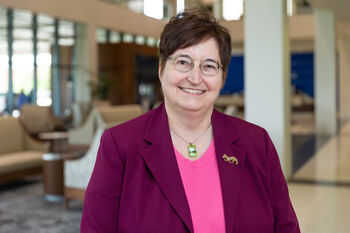
Martine Extermann MD, PhD, focuses on treating the whole patient, not just the disease.
What began as a temporary stint became a career-defining mission.
“Honestly, I was afraid at first. In the ’90s, we didn’t have much to offer older patients, and geriatric oncology felt overwhelming,” Extermann said. “I tried to run from it. But eventually I felt called to stay. I realized it was exactly where I was supposed to be.”
From the start, the program focused on treating the whole patient, not just the disease. Instead of treating age as a number, Moffitt doctors instituted comprehensive geriatric assessments. This tool measures cognition, nutrition, mobility, medications and support systems before starting treatment.
“The more we age, the more diverse we are,” Extermann explained. “At 20, we are about the same functionally. At 70, some people fly in space while others struggle to go to the bathroom.”
The program has also transformed how care is delivered. Instead of oncologists working alone, every case is reviewed by a team that includes social workers, dietitians and other specialists.
“At our tumor board, the dietitian and social worker are at the table, not against the wall,” Extermann said, explaining the process for how specialists from different areas come together to discuss each patient’s treatment plan. “Cancer is the ultimate personalized care. You have to treat the whole person.”
Changing the Rules of Research
Over the years, Extermann’s influence has reached far beyond Moffitt. She is a founding member of the International Society of Geriatric Oncology, which has advocated for the removal of arbitrary age cutoffs from trials and the establishment of geriatric assessments as best practice.
“We had to change the rules,” she said. “Otherwise, we would never know how treatments really worked in a majority of patients.”
Her latest focus is on digital oncology, using real-world data from thousands of patients through Moffitt’s clinical platform. The goal is to guide treatment for patients who will never fit into traditional studies.
“Someone 85 years old with bladder cancer and heart failure is never going to be in a trial,” she said. “But we may have treated dozens of patients like them here. Using AI and digital tools, we can learn from that and guide care in ways that clinical trials never will.”
Looking back, she reflects on what she and her colleagues built. “At some point, we realized we were changing the world,” Extermann said. “We were changing how older patients were treated everywhere, and that’s an overwhelming but very gratifying feeling.”
A Personal Calling
When Christine Sam, MD, talks about why she chose geriatric oncology, her story doesn’t start in medical school. It begins at home in Michigan, with her grandmother.
“My grandma lived with us my whole life,” Sam said. “She was a big part of my life. I joked that I was her walking stick.”
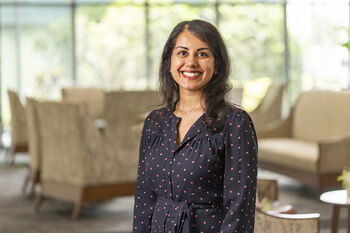
Christine Sam, MD, says the geriatric population has a very special place in her heart because of cherished time spent with her grandmother.
As her grandmother grew frail, Sam helped her get around the house and gave her insulin shots. Those experiences shaped her perspective on medicine.
“The geriatric population has a very special place in my heart,” she said.
After completing her training in Michigan, Sam headed south for a fellowship at Moffitt. “I wanted something different, something out of the cold,” she laughed.
What sealed the deal was Moffitt’s rare focus on older patients. She trained in the clinics of pioneers, Extermann and Balducci, and stayed on as faculty in 2018.
From the start, Sam was drawn to the bonds between oncologists and patients.
“There’s nothing quite like the relationship between an oncologist and a patient,” she said. “Even if you can’t always cure a patient, you can always bring comfort, you can always support their needs.”
Learning What Matters Most to Patients
This perspective guides her care today. “We are not treating cancer in a vacuum. We’re treating a person who has cancer,” Sam said.
Many of her patients have other health problems like heart disease, diabetes or osteoporosis, and that affects what treatments make sense. Sometimes, a drug that causes nerve damage might put a diabetic patient at risk for falls and fractures.
The key for Sam is listening to what her patients value.
“Sometimes their goals are I don’t care if I live two months longer, but I want to stay in my house and be independent. That’s more important to me,” she said.
At Moffitt, those conversations start early. Every new senior adult patient completes the geriatric assessment before the first visit. The goal is to spot problems early.
“You can see the runaway train before the crash happens,” she said.
If a patient is malnourished, the team brings in nutrition services. If a patient is weak, physical therapy may come before chemotherapy. If a patient is caring for their partner with dementia, family meetings are held to rally support.
“Precise care is also making sure we find a treatment that works with the patient’s life and their other medical diseases,” Sam said. “They are often not the same as the patients who were on trials.”
Her patients keep her inspired. She sees a 100-year-old patient who still insists on treatment. Another woman chose a lighter regimen so she could keep chasing her grandchildren. Others want nothing more than to stay independent in their own homes.
Many patients have also become part of her own life, celebrating the milestones of her children and asking for regular updates. “I see my grandma in them,” Sam said, smiling.
Looking ahead, Sam wants to make geriatric oncology not just a specialty, but part of everyday cancer care everywhere.
“Over half of cancer cases are in patients 65 and above,” she said. “In reality, every oncologist is a geriatric oncologist. My goal is to make it more feasible for everyone to bring these tools into their practice, so older patients get the care they deserve.”
The Science Linking Aging and Cancer
For Ana Gomes, PhD, science has always started with questions. “I was a very curious person. I always asked too many questions — just ask my mother,” she laughed.
That curiosity eventually led her to science, and in graduate school, she found her passion.
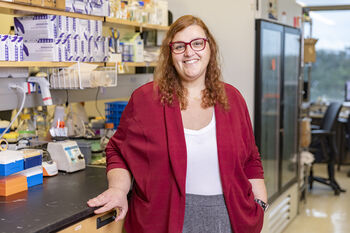
Ana Gomes, PhD, studies how aging in the body interacts with cancer and how it contributes to the development of tumors.
“I studied aging biology because in my mind at the time, I thought that aging was probably the biggest problem we needed to tackle in terms of human health,” she said. “Because we all age. That is not up for argument.”
Her work on aging soon led her to cancer. “Not many people actually perceived cancer as a disease of old age,” she said, “But the reality is that cancer is mostly a disease of old age. The median age of cancer diagnosis is 65. For lung cancer, it’s 71. You can see the correlation there.”
That connection fascinated her. She began studying how aging in the body interacts with cancer and how the decline of systems with age creates an environment where tumors are more likely to develop.
“The events that originate a cancer occur very often throughout our lifespans, but not everybody develops cancer,” Gomes said. “It’s really the breaking down of your body that makes the environment good for cancer to then manifest.”
Moffitt, situated in a state with a large senior population and a commitment to discovery, proved to be the ideal place to pursue those questions.
“Here, I feel like if I can dream it, I can do it,” Gomes said. “That is not something you often feel in your work.”
Fueling the Future
Gomes’ lab focuses on metabolism, or the way the body produces and uses energy, and its impact on both aging and cancer.
“Metabolism is energy, and you need energy; otherwise you are not alive,” she said. “Cancer is very energetically demanding.”
Aging alters metabolism, as do lifestyle factors like diet and exercise. Those shifts can change what fuels are available to cancer cells and how cancers grow. Gomes notes that obesity is essentially a metabolic problem that raises the risk and worsens outcomes of many cancers.
That link has led to surprising discoveries. Gomes and her team have found that some FDA-approved drugs considered ineffective against certain cancers in younger patients may actually work in older ones.
“That was very shocking to me,” she said. “You can have a drug that absolutely doesn’t do anything in the context of young age. But you give it in the context of old age, and now you have complete regression.”
For Gomes, that means you can’t just study the tumor, you must study it in the context of the person it lives in.
“Precision medicine can’t just be about the cancer. A cancer resides inside a person. And that person is important,” she said.
Looking ahead, she sees potential in targeting aging itself. If researchers can delay or normalize aspects of the aging process, the body may become less tolerant to cancer.
“If you make that system no longer permissive, then that cancer cell may never actually give rise to a tumor,” Gomes said. “Even if you can’t stop aging, you may be able to normalize certain aspects of older tissues, so cancers become less aggressive and more treatable.”
As a woman in science, Gomes hopes her path inspires others.
“We are really as good as our network and support system,” she said. “The path is bright. You can make it happen.”



